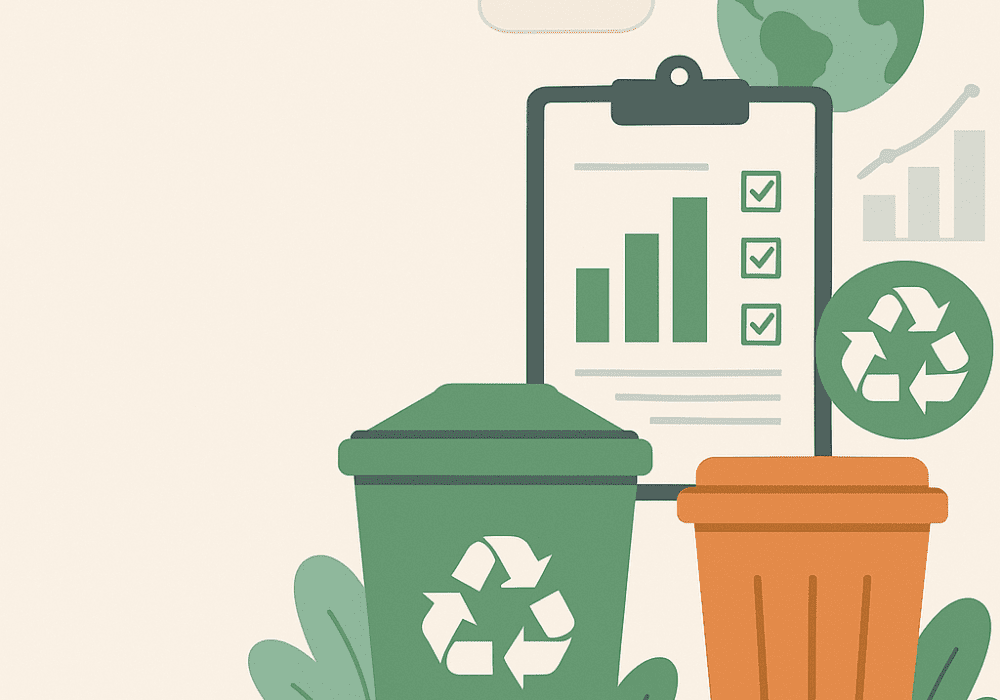
Introduction
As councils across the UK strive to meet ambitious sustainability targets, the importance of accurate waste tracking and reporting has never been greater. Whether it’s reducing landfill use, increasing recycling rates, or cutting carbon emissions, having reliable data is key to measuring progress and shaping effective strategies.
In this blog, we explore how digital waste tracking can help councils achieve their environmental goals—while improving efficiency and public transparency.
Why Waste Tracking Matters
Without robust tracking systems, councils face a major challenge: they can’t manage what they can’t measure. Manual reporting processes and fragmented systems often lead to incomplete or inaccurate data, making it difficult to:
- Monitor performance against local and national targets
- Identify areas for improvement
- Report reliably to stakeholders and regulatory bodies
Digital solutions provide real-time data on collection volumes, material types, contamination levels, and more—offering councils the clarity they need to drive environmental improvements.
Driving Progress Toward Net Zero
Waste is a major contributor to greenhouse gas emissions. By accurately tracking what’s collected, where it goes, and how it’s processed, councils can make smarter decisions that support carbon reduction efforts.
With the right digital tools, councils can:
- Measure landfill diversion rates
- Track recycling contamination to target improvements
- Calculate the carbon impact of waste operations
- Support policies that prioritise reuse, recycling, and recovery
Waste tracking isn’t just about efficiency—it’s a foundation for long-term climate action.
Supporting Transparency and Public Trust
Residents increasingly want to know how their council is performing on environmental issues. By using digital platforms to monitor and report waste metrics, councils can share meaningful updates with the public, boosting accountability and engagement.
A transparent approach can:
- Build community support for sustainability initiatives
- Reduce complaints by clearly showing progress
- Encourage better recycling behaviours
When residents understand how their actions contribute to broader goals, they’re more likely to participate and improve sorting habits.
Enabling Smarter Decision-Making
From strategic planning to day-to-day operations, reliable waste data helps councils make informed choices. Whether identifying service gaps, investing in new infrastructure, or planning public education campaigns, digital reporting offers the insights needed to:
- Allocate resources effectively
- Benchmark performance between neighbourhoods
- Adapt quickly to changes in legislation or demand
With data at their fingertips, councils can be proactive rather than reactive.
Real-World Impact
Many councils already using digital tracking tools are seeing significant results. For example:
- One local authority improved its recycling rate by 15% in 12 months through better contamination tracking
- Another reduced landfill volumes by introducing live data dashboards for waste crews
These successes show the power of tracking and reporting when aligned with strategic sustainability goals.
Conclusion
Meeting sustainability targets isn’t just about setting ambitions—it’s about tracking progress, adapting strategies, and engaging communities along the way. Digital waste tracking and reporting give councils the tools to do just that.
At Whitespace Work Software, we help local authorities implement flexible, data-driven systems that support environmental and operational goals.
